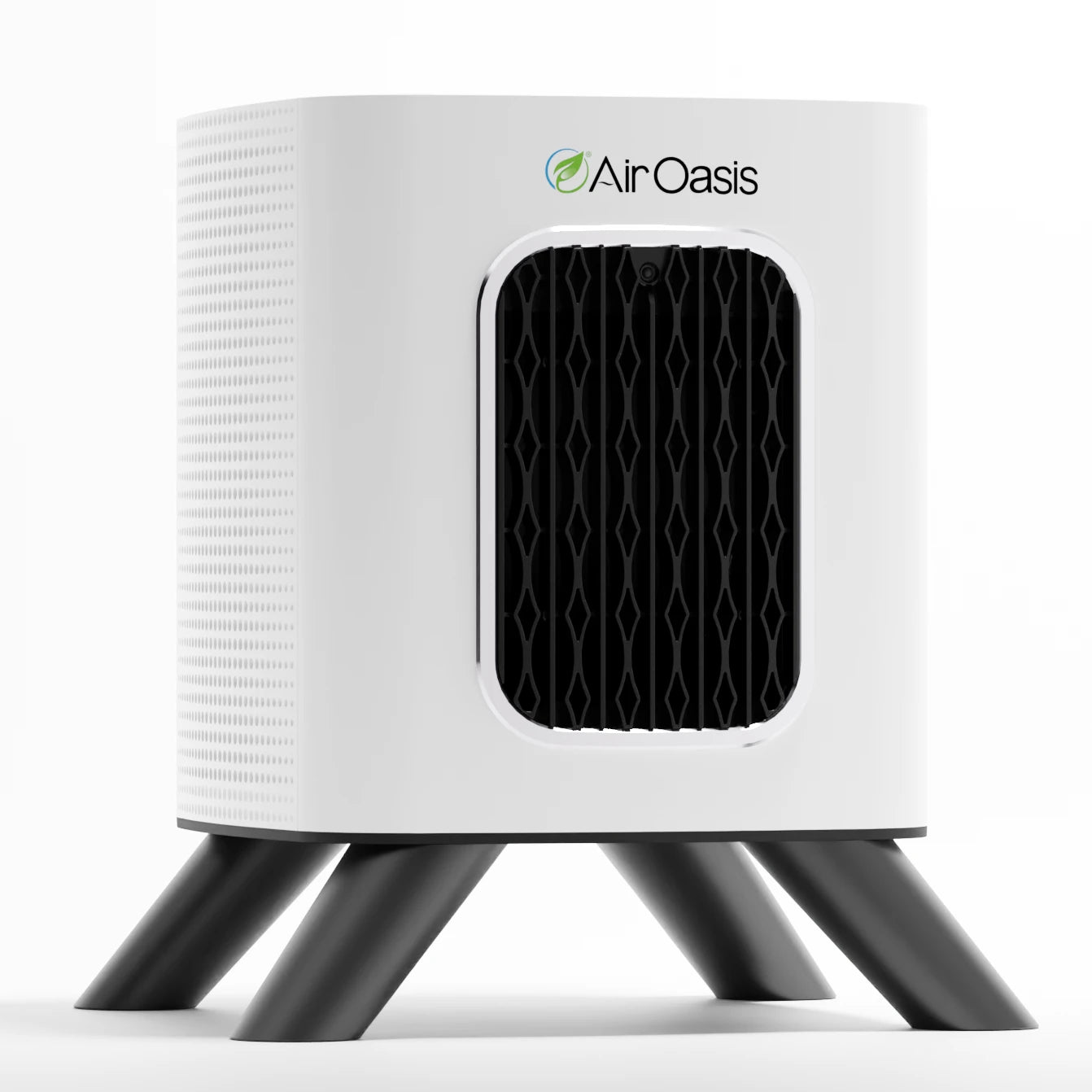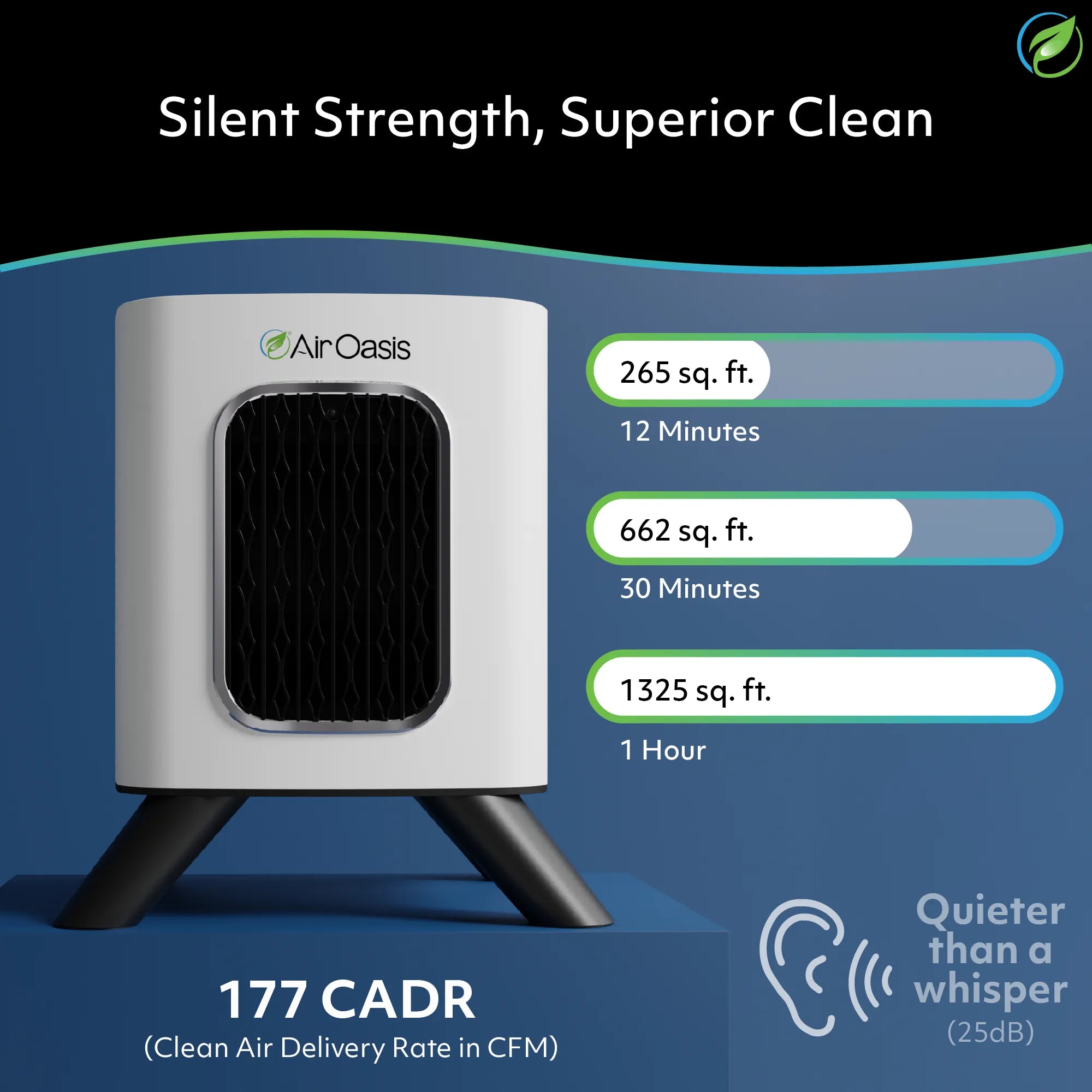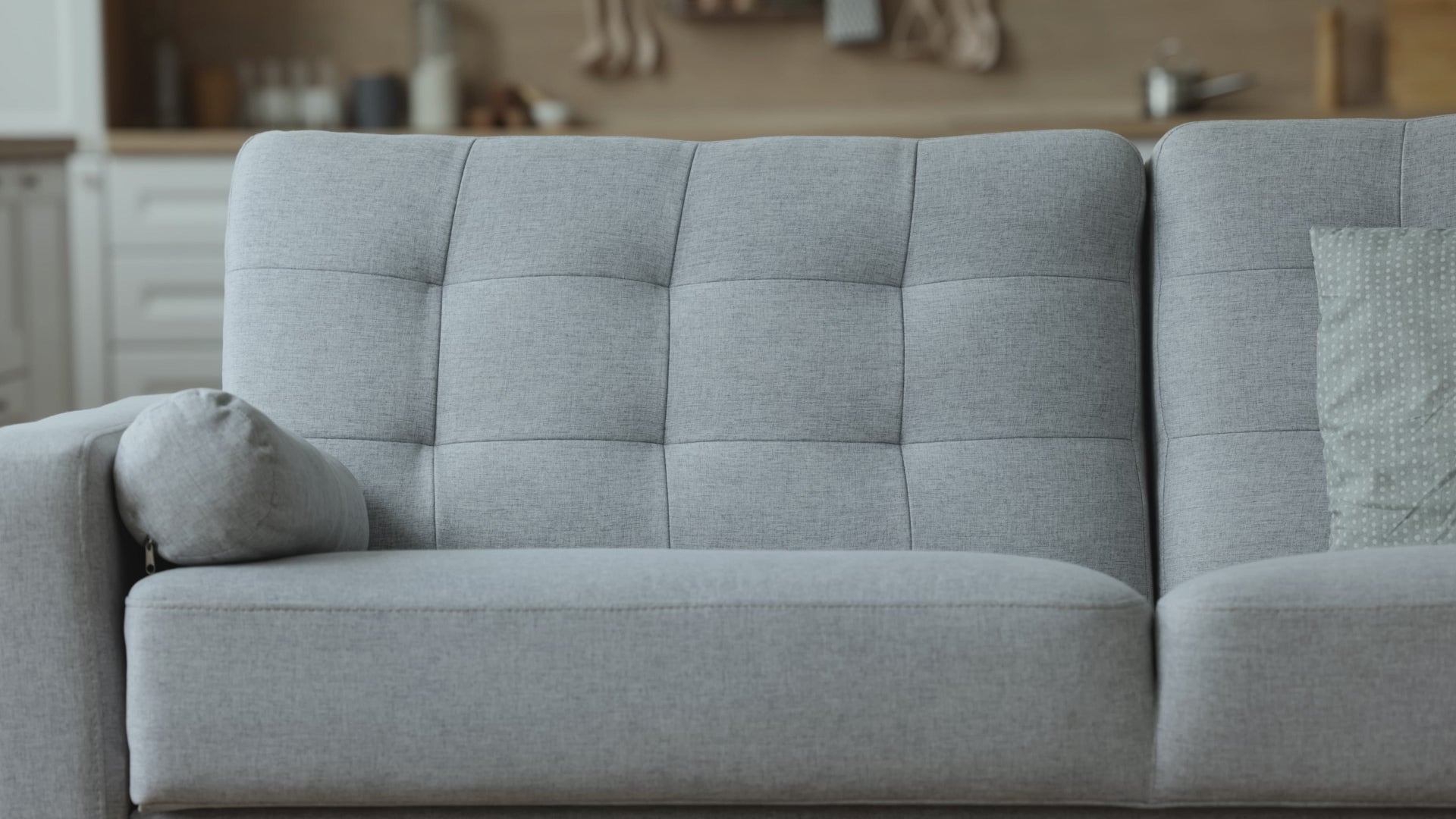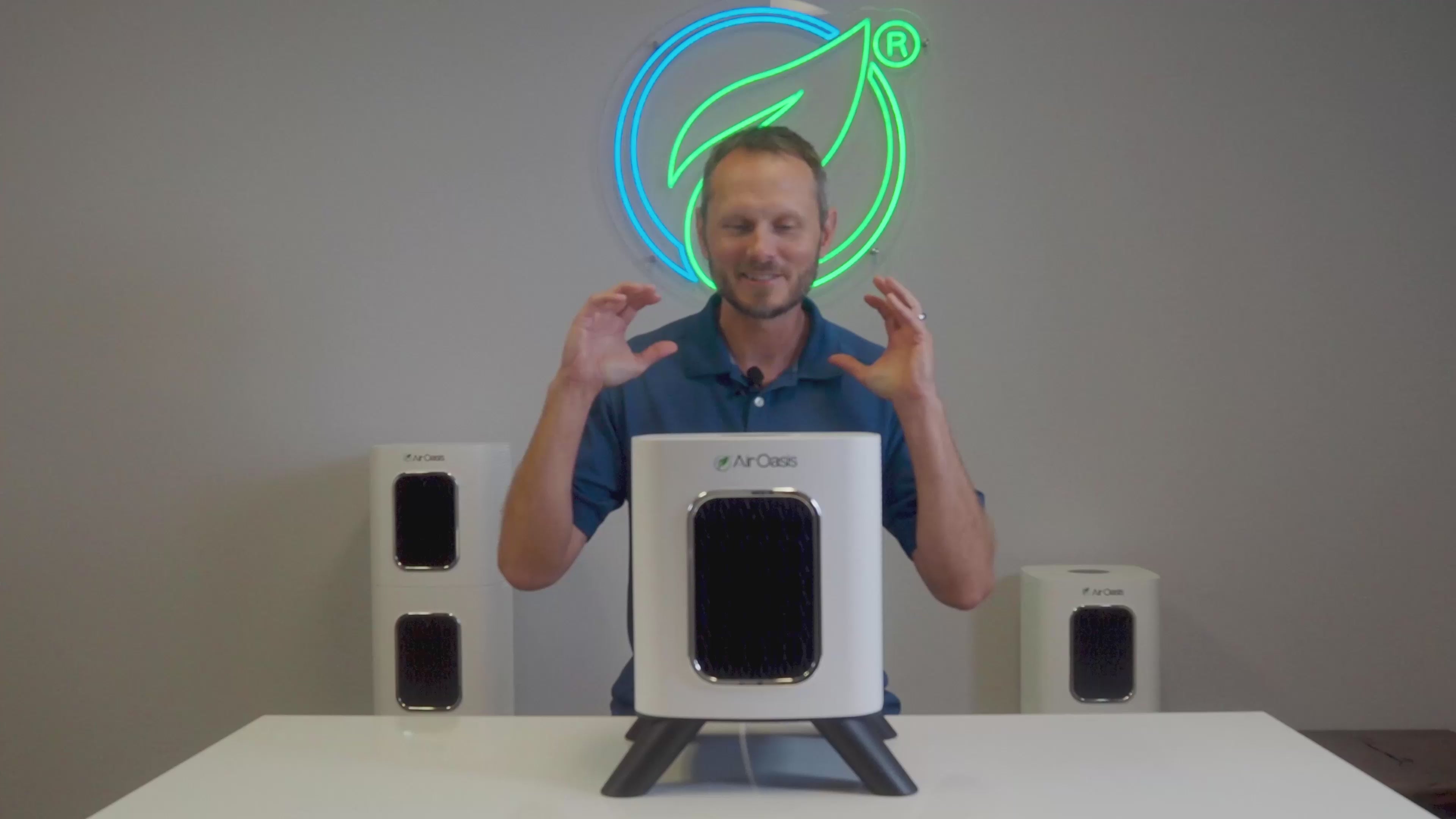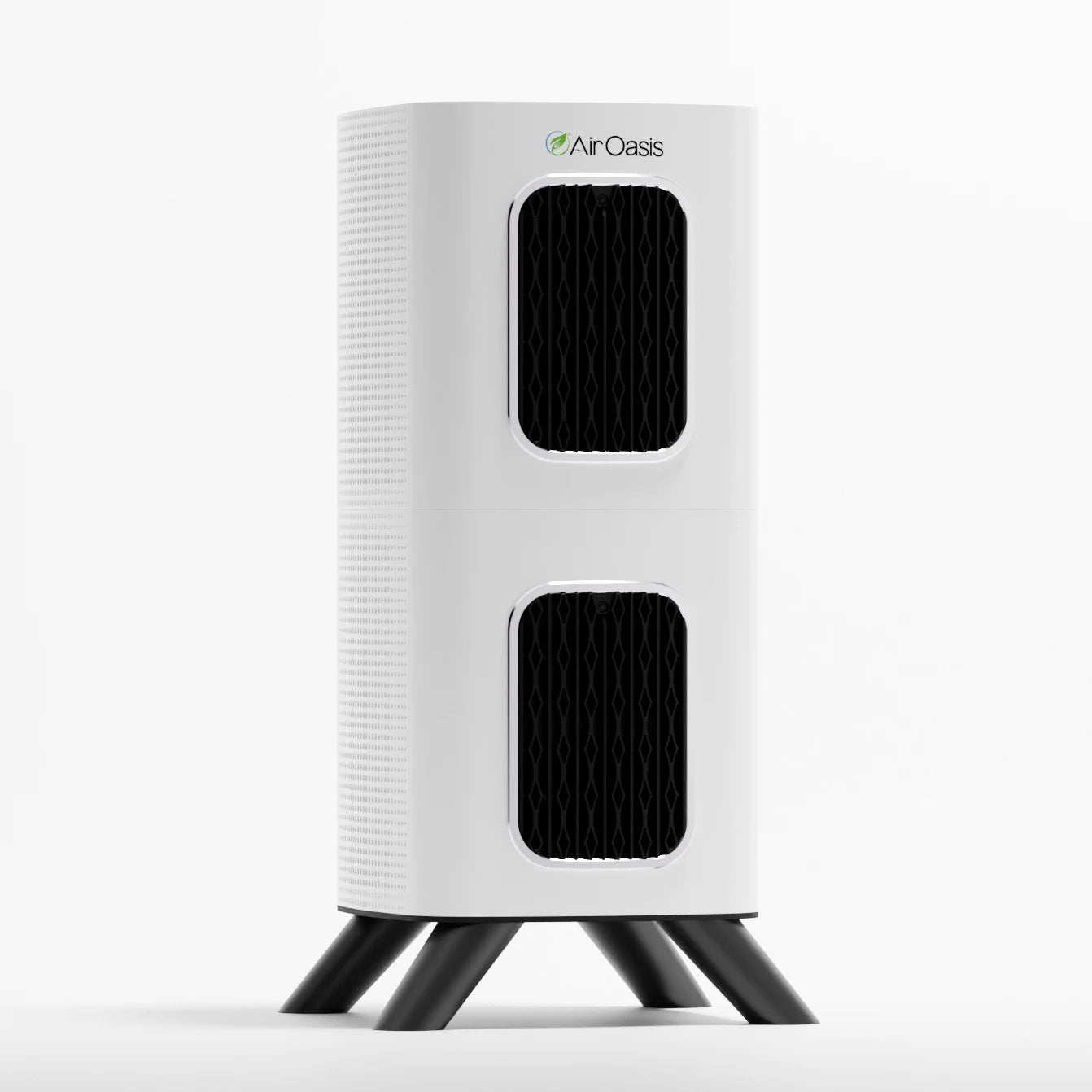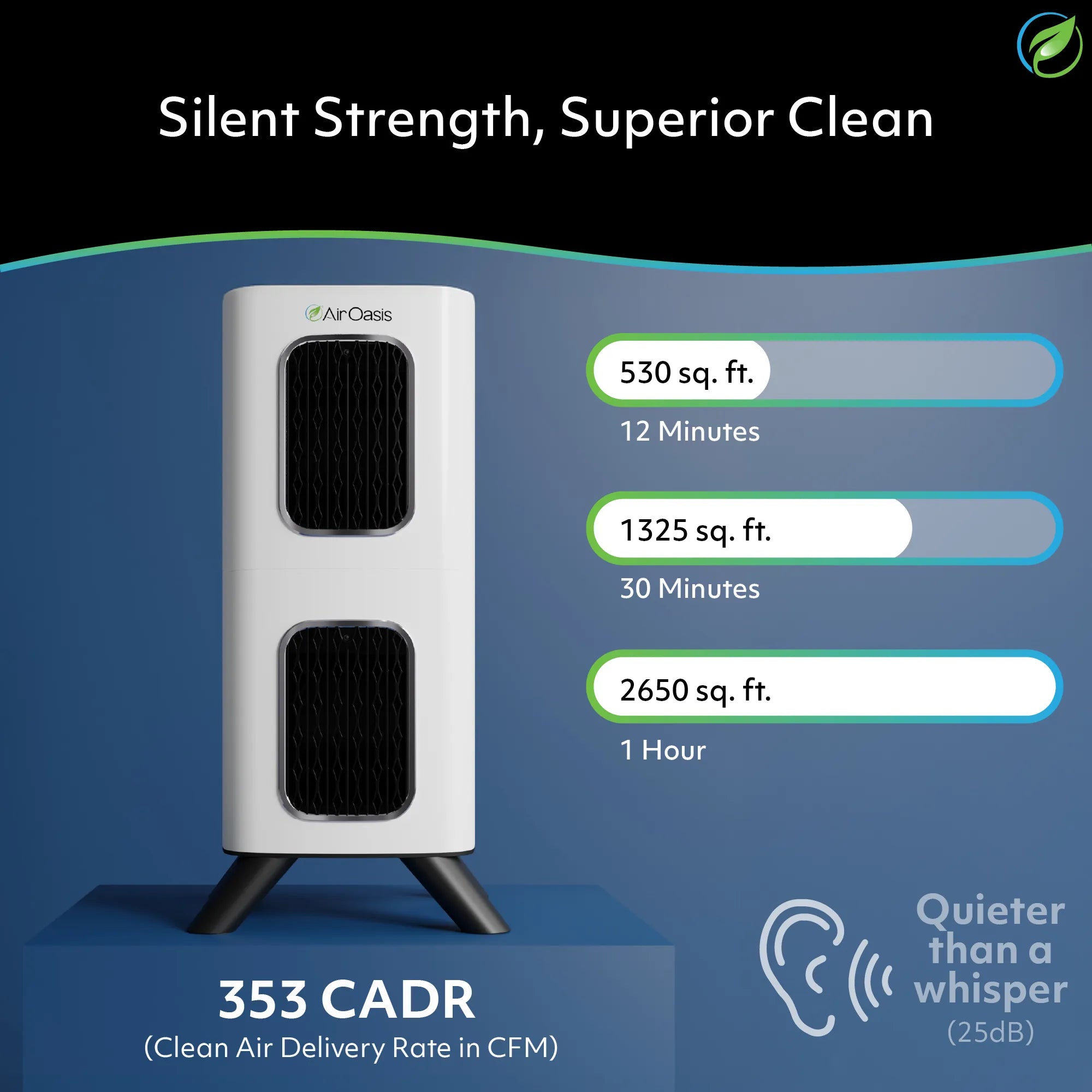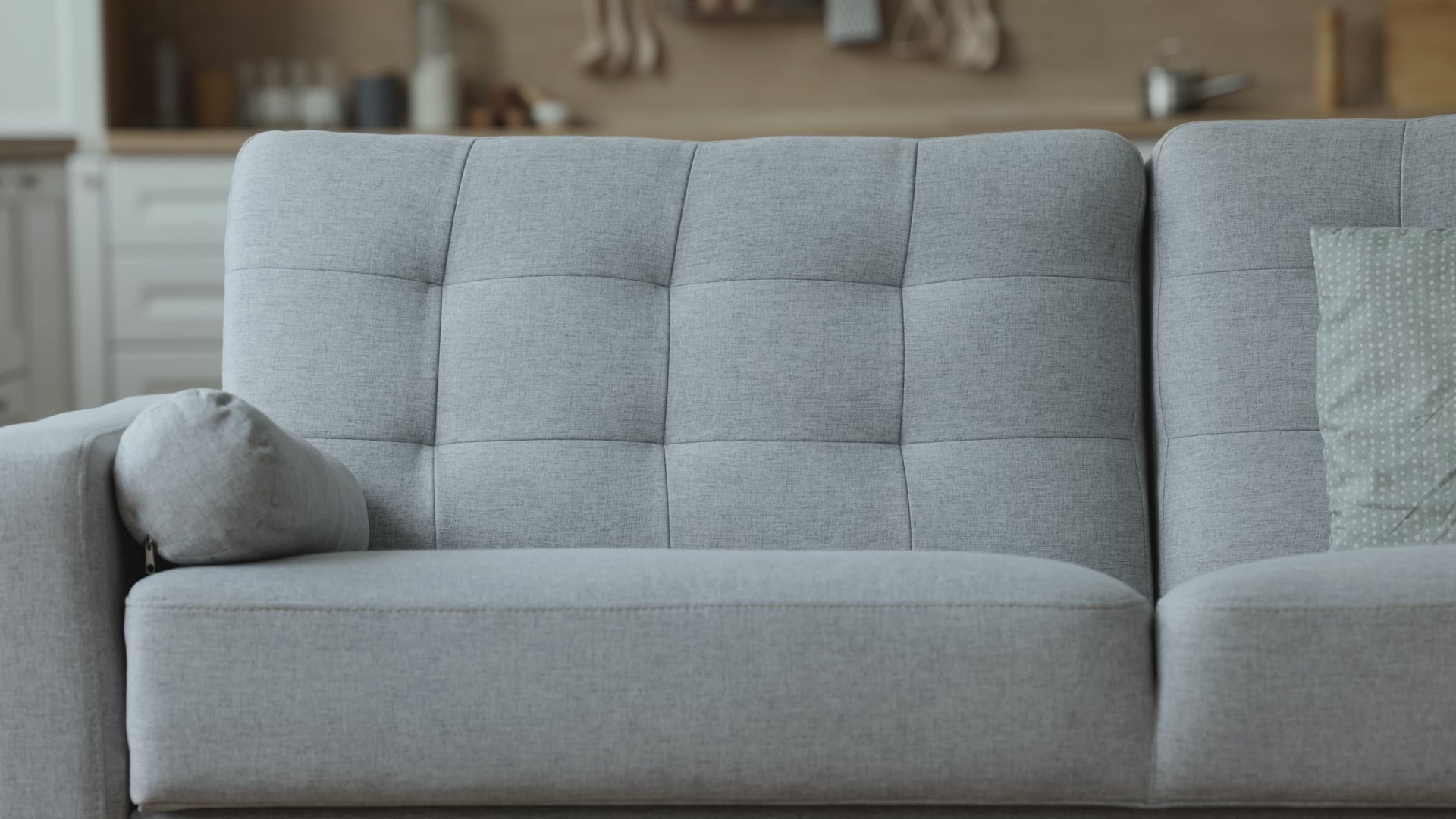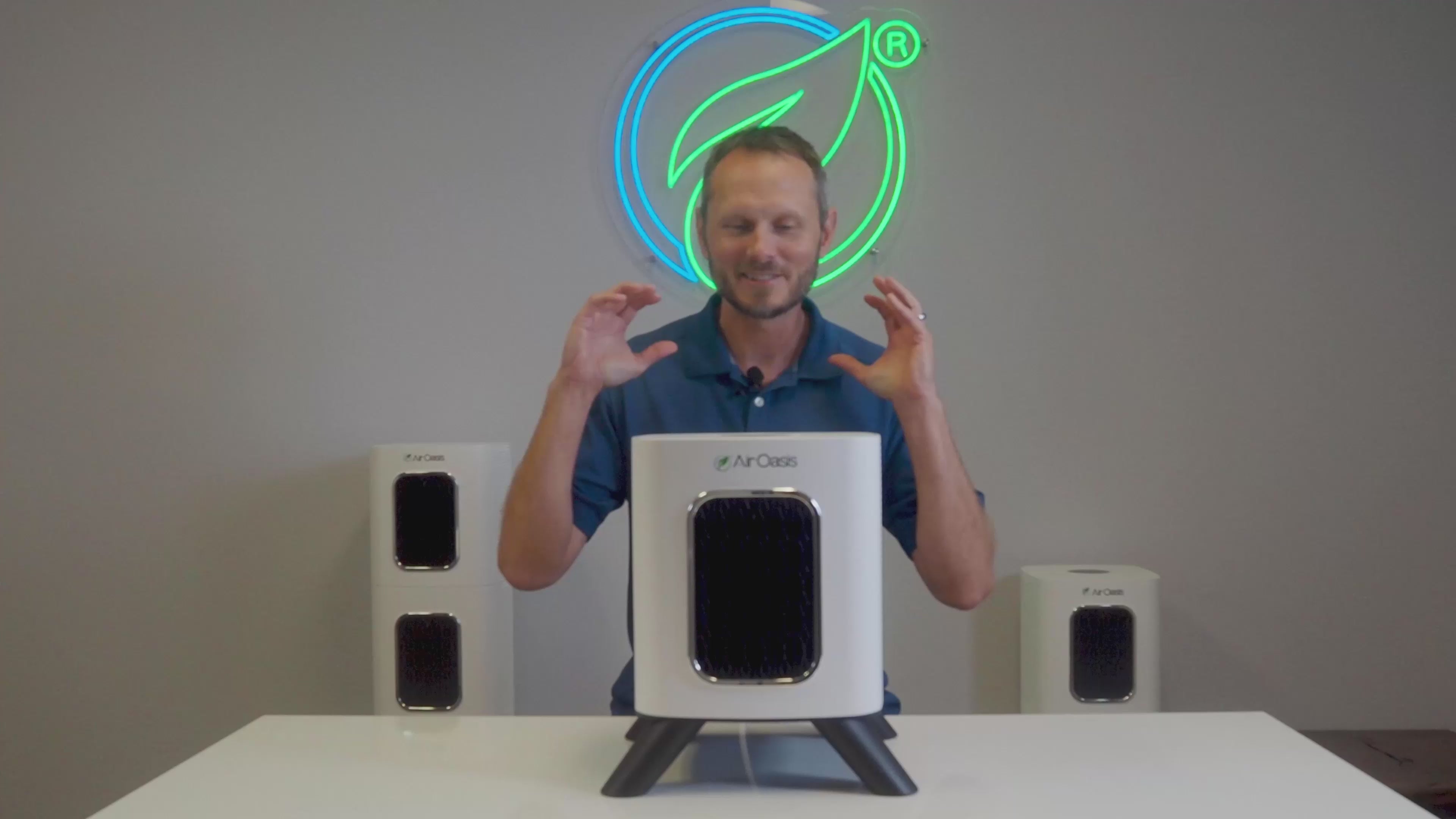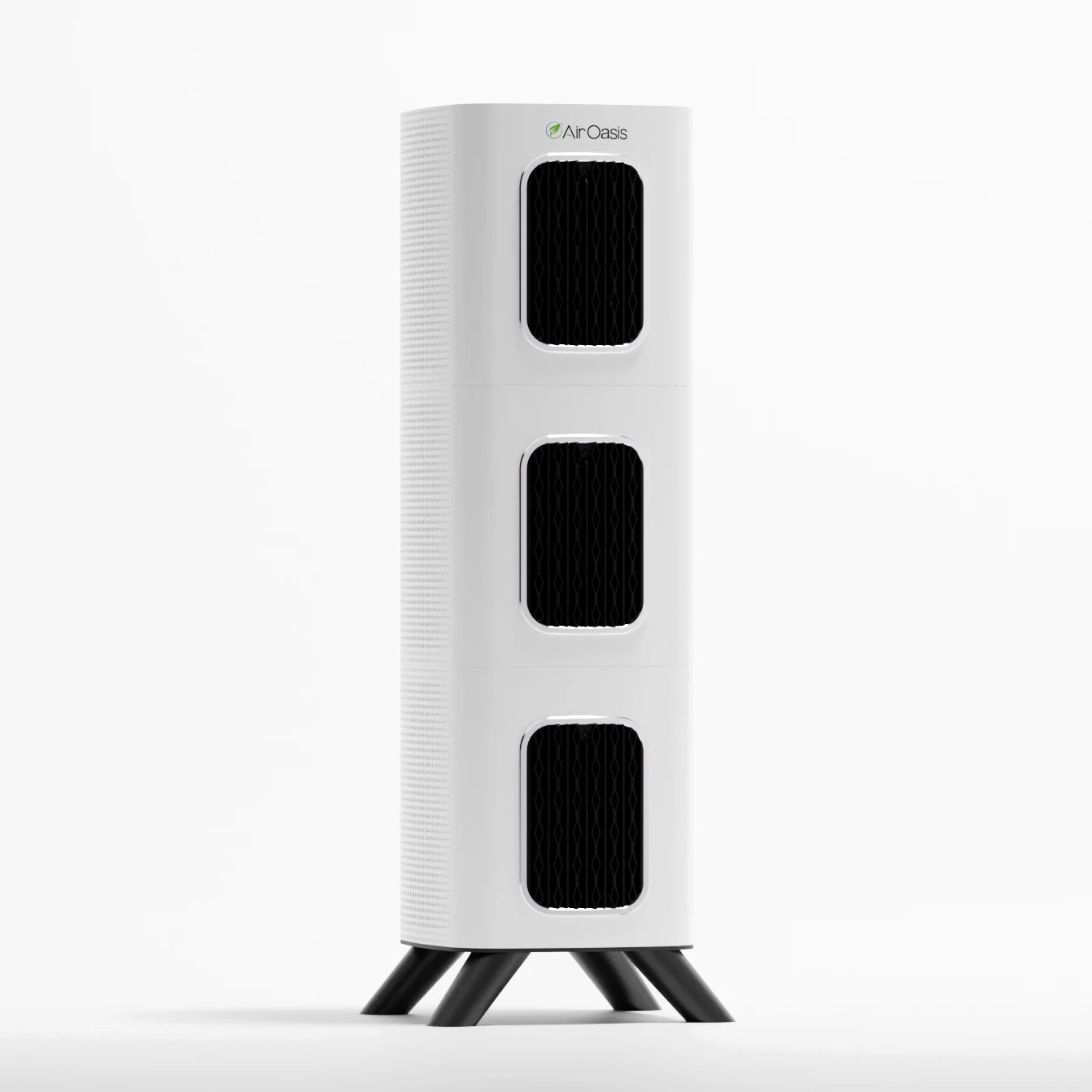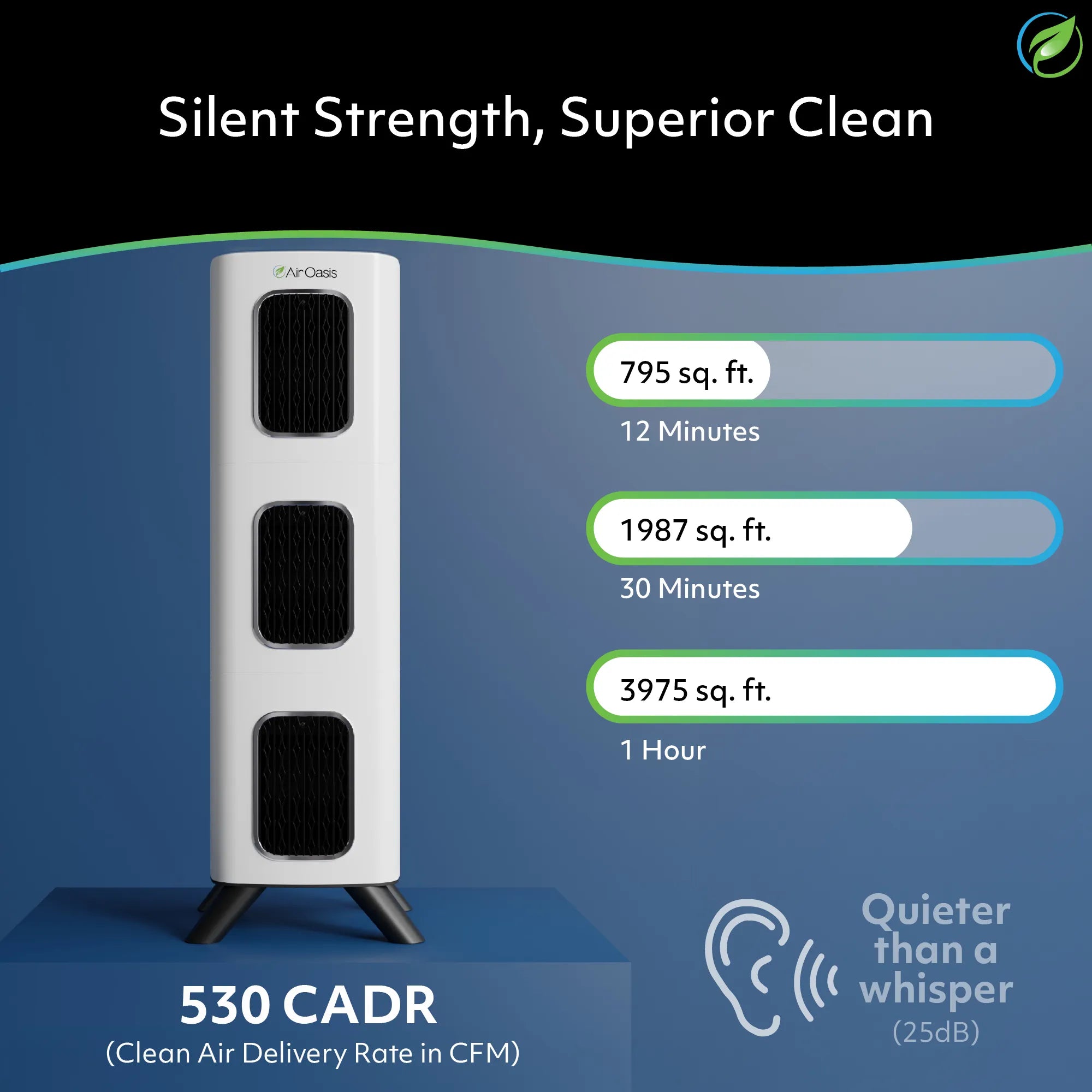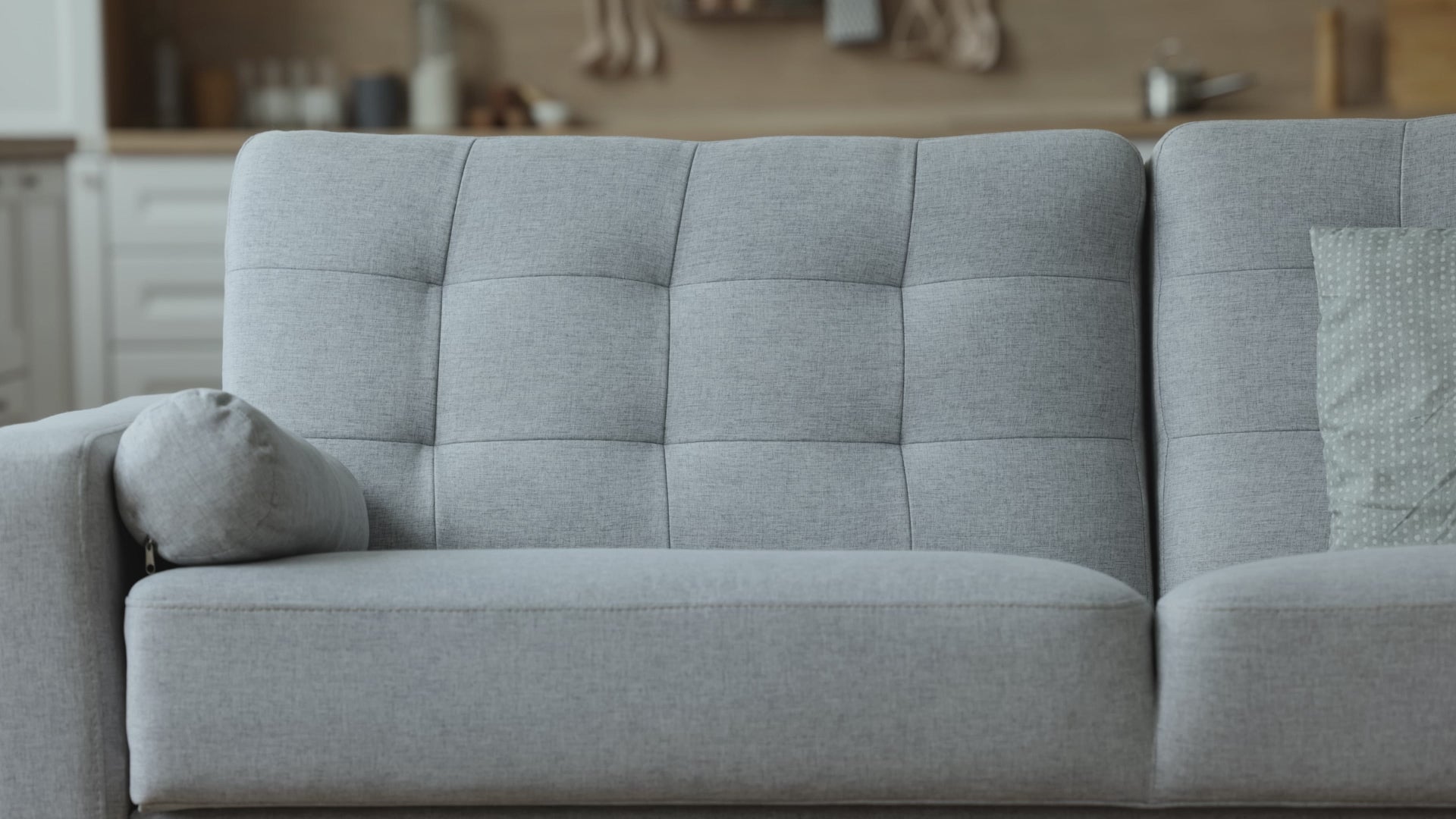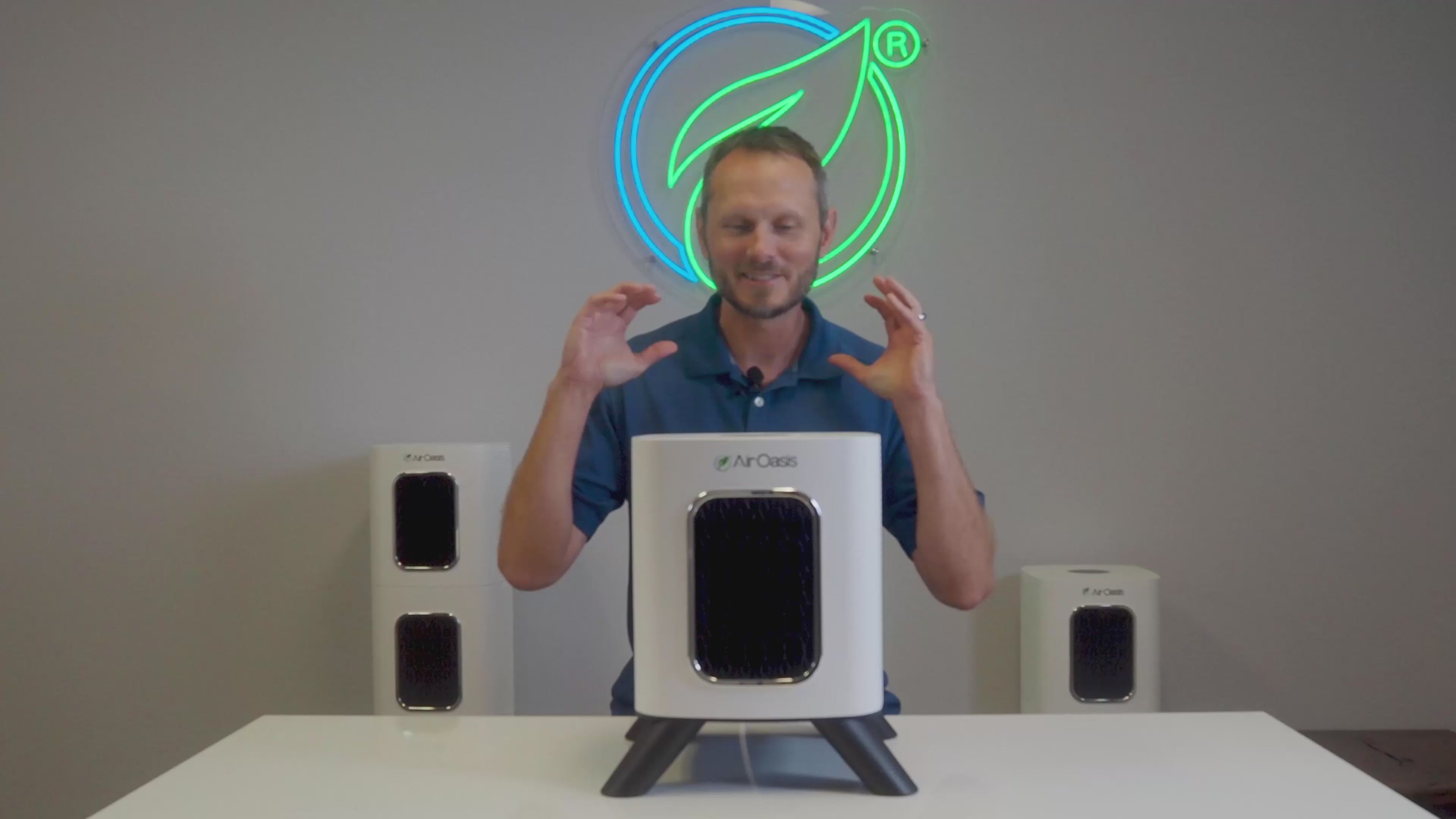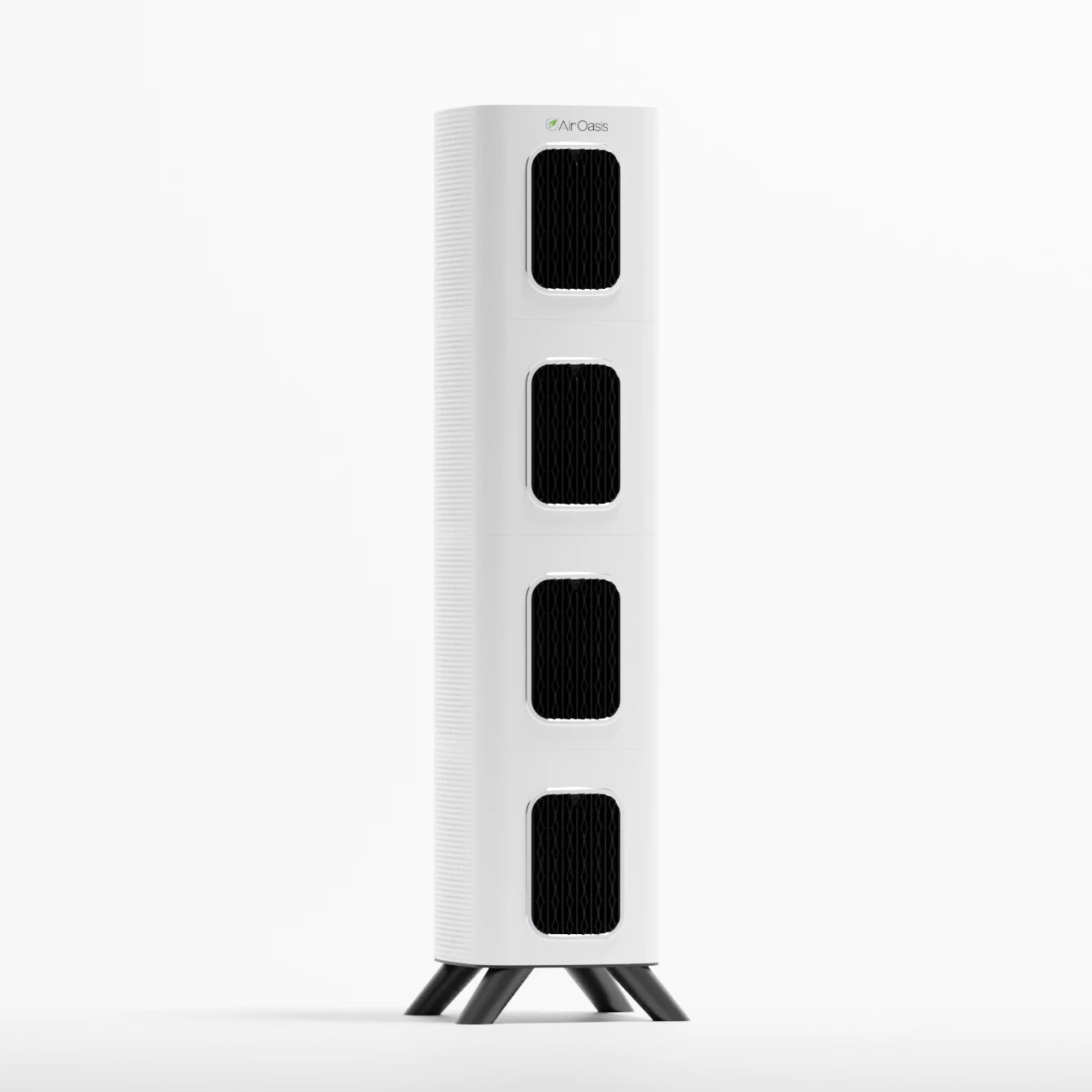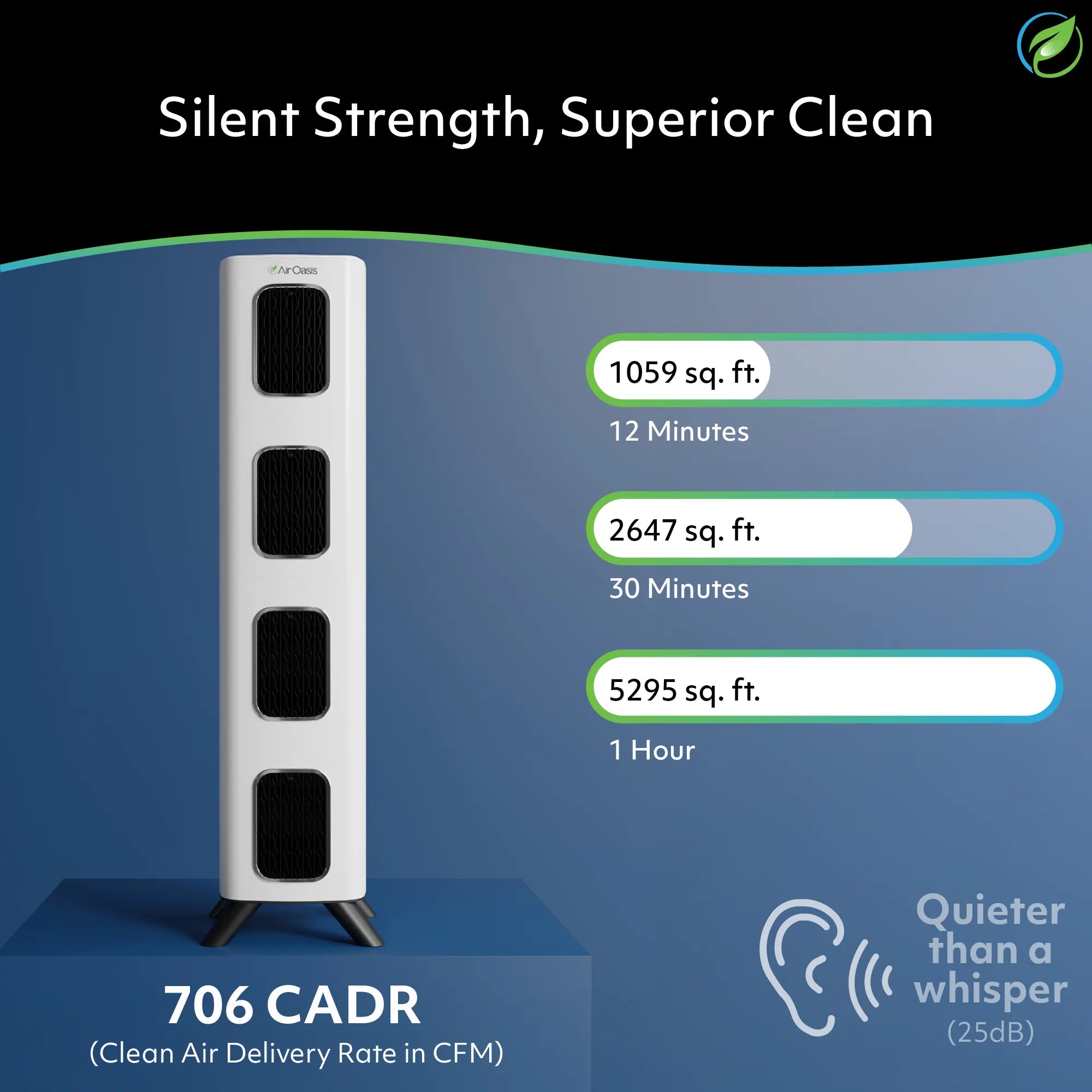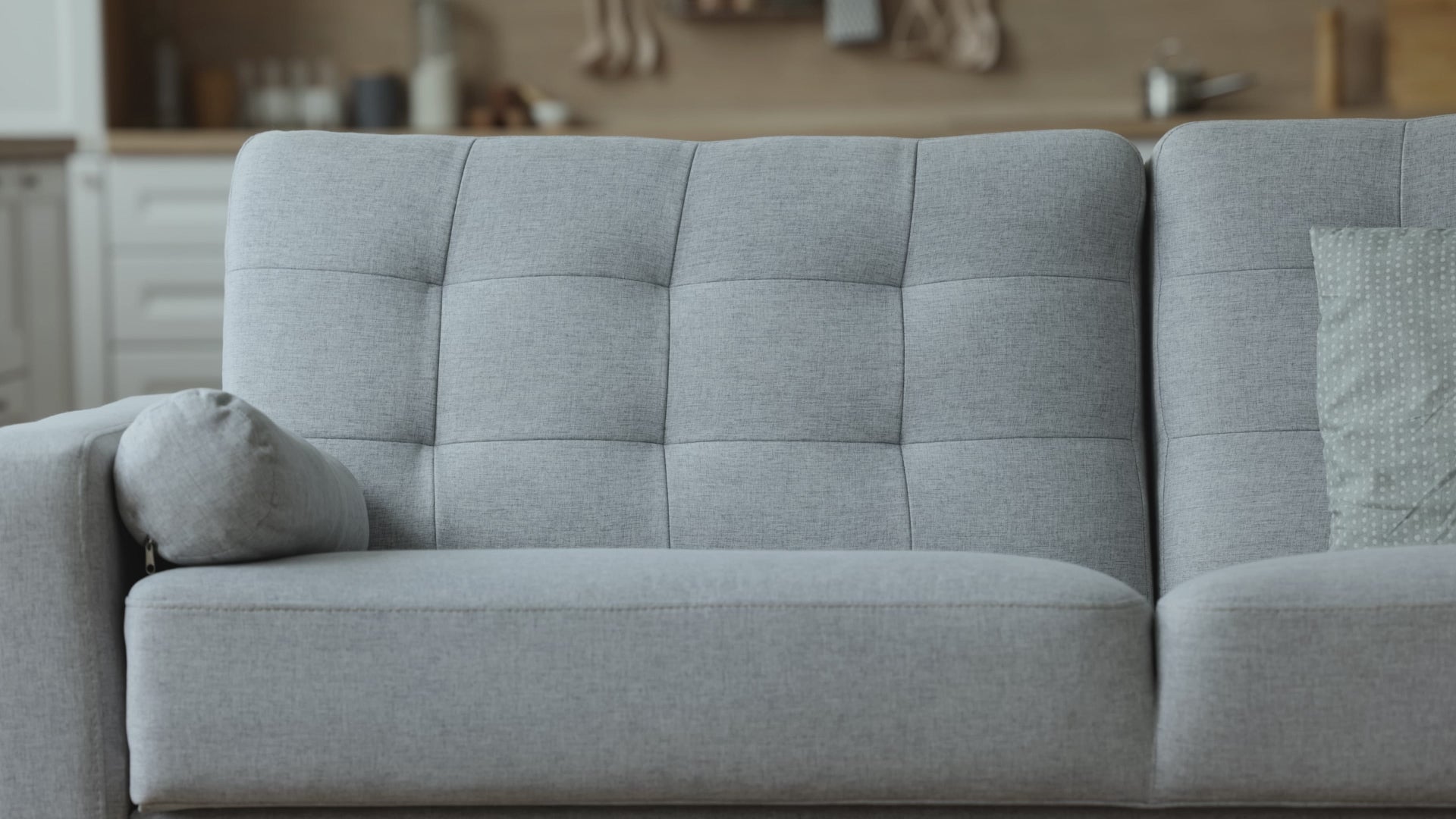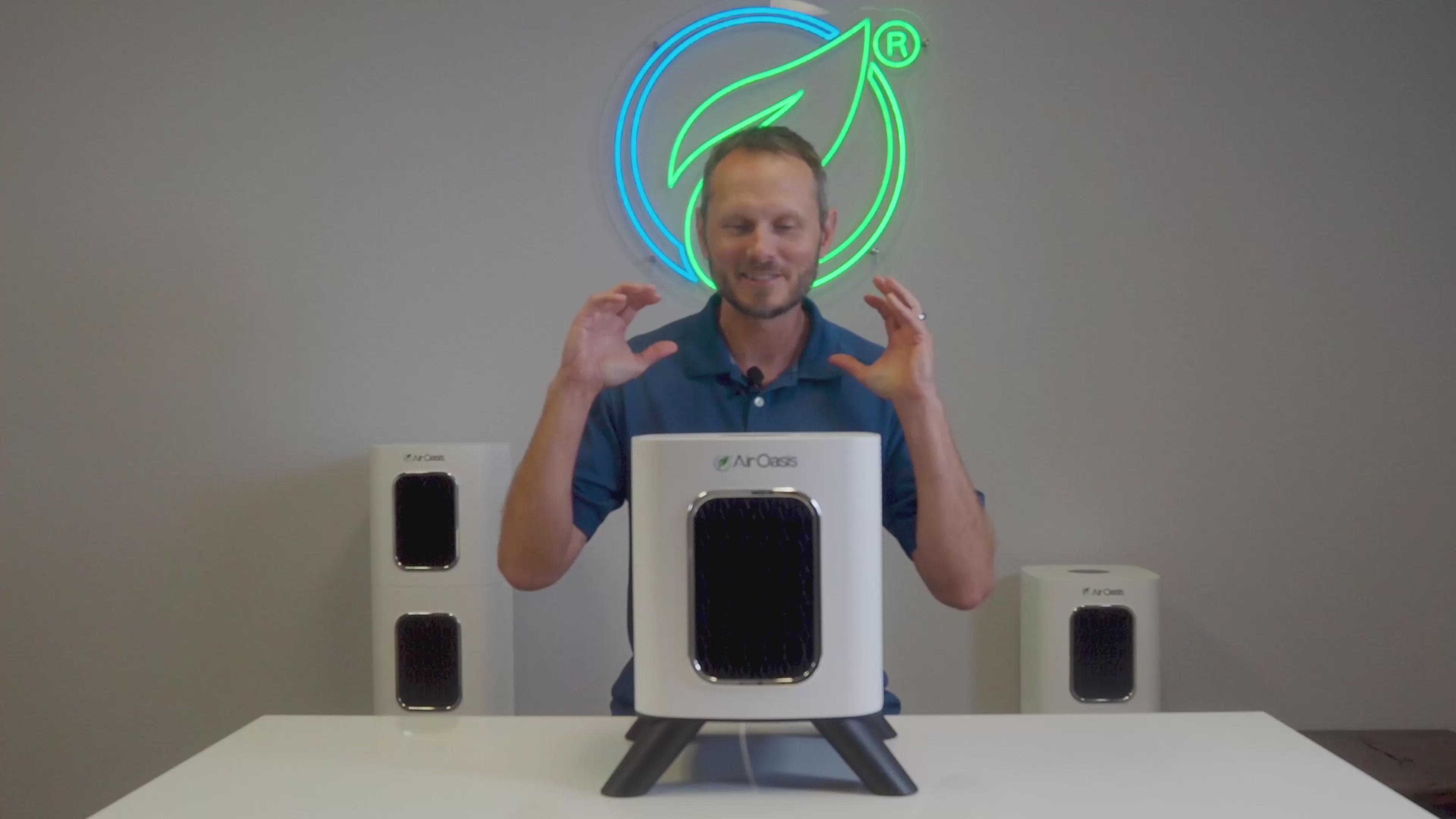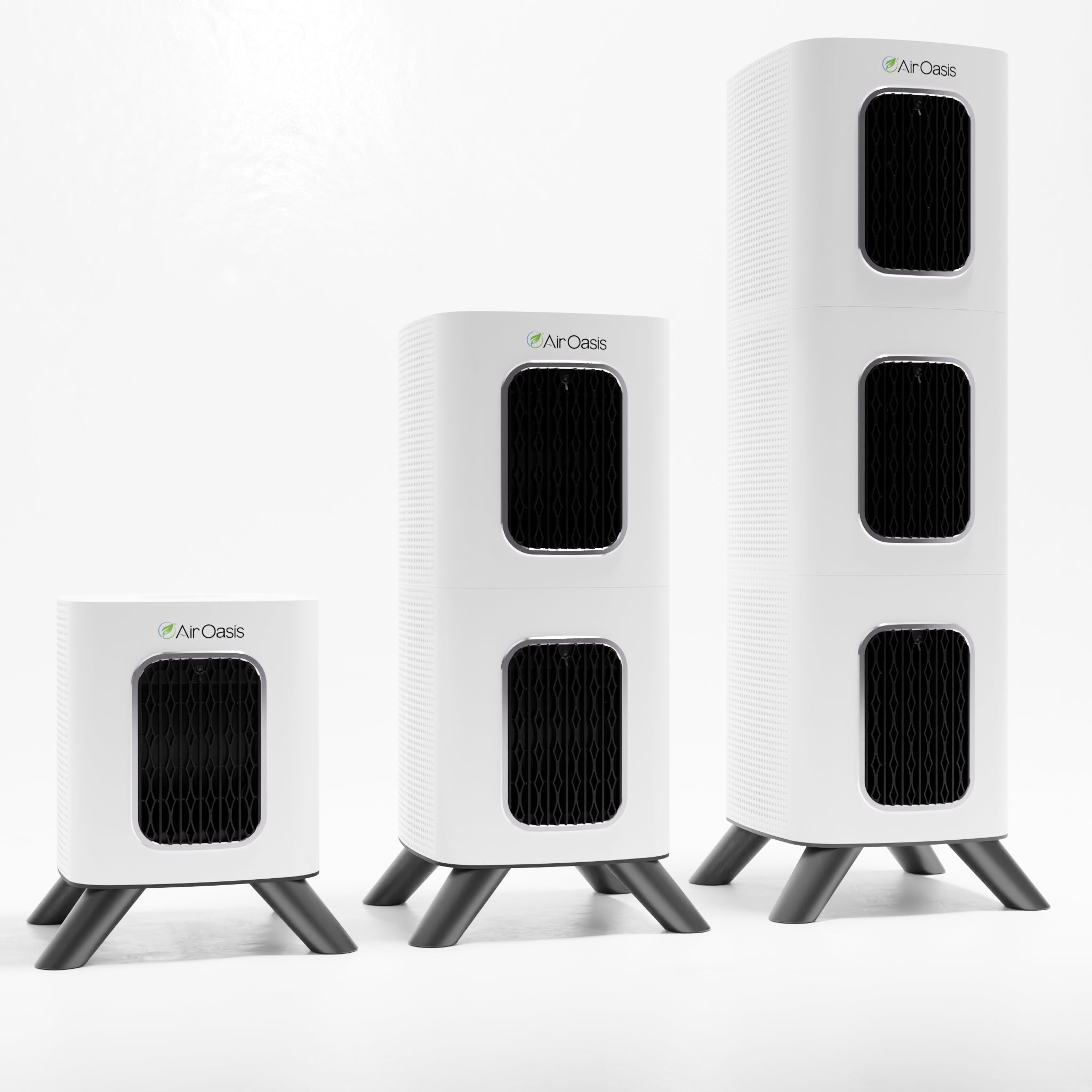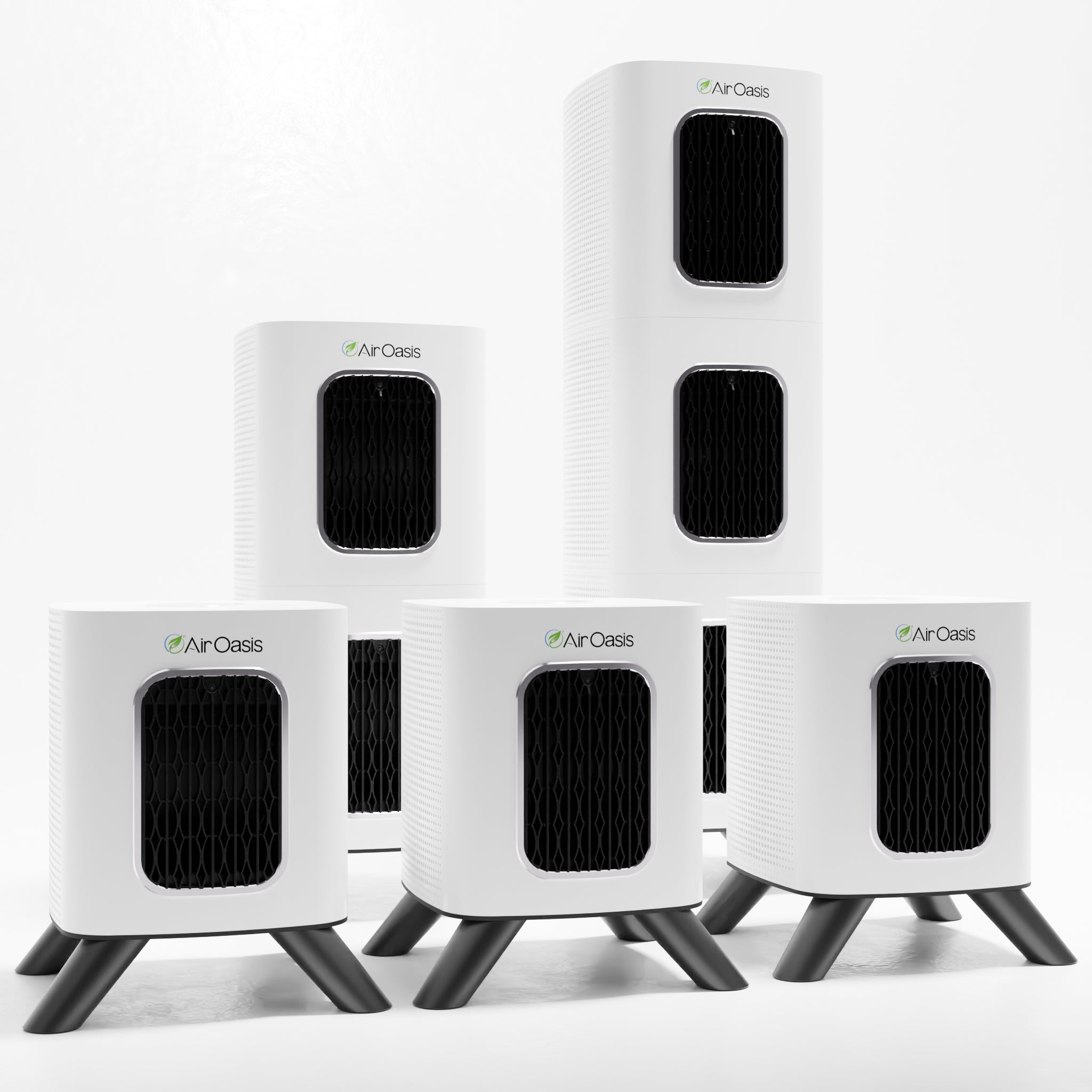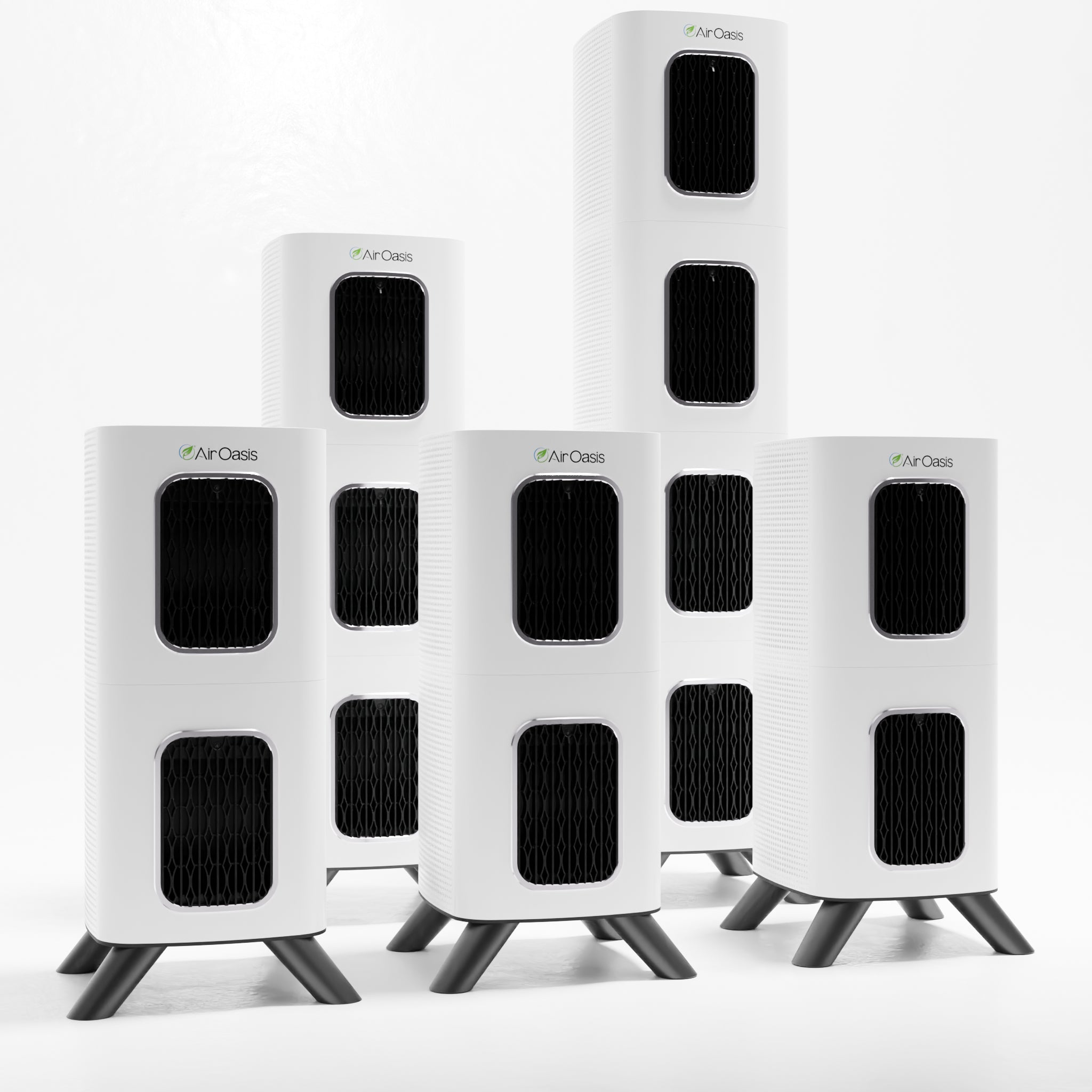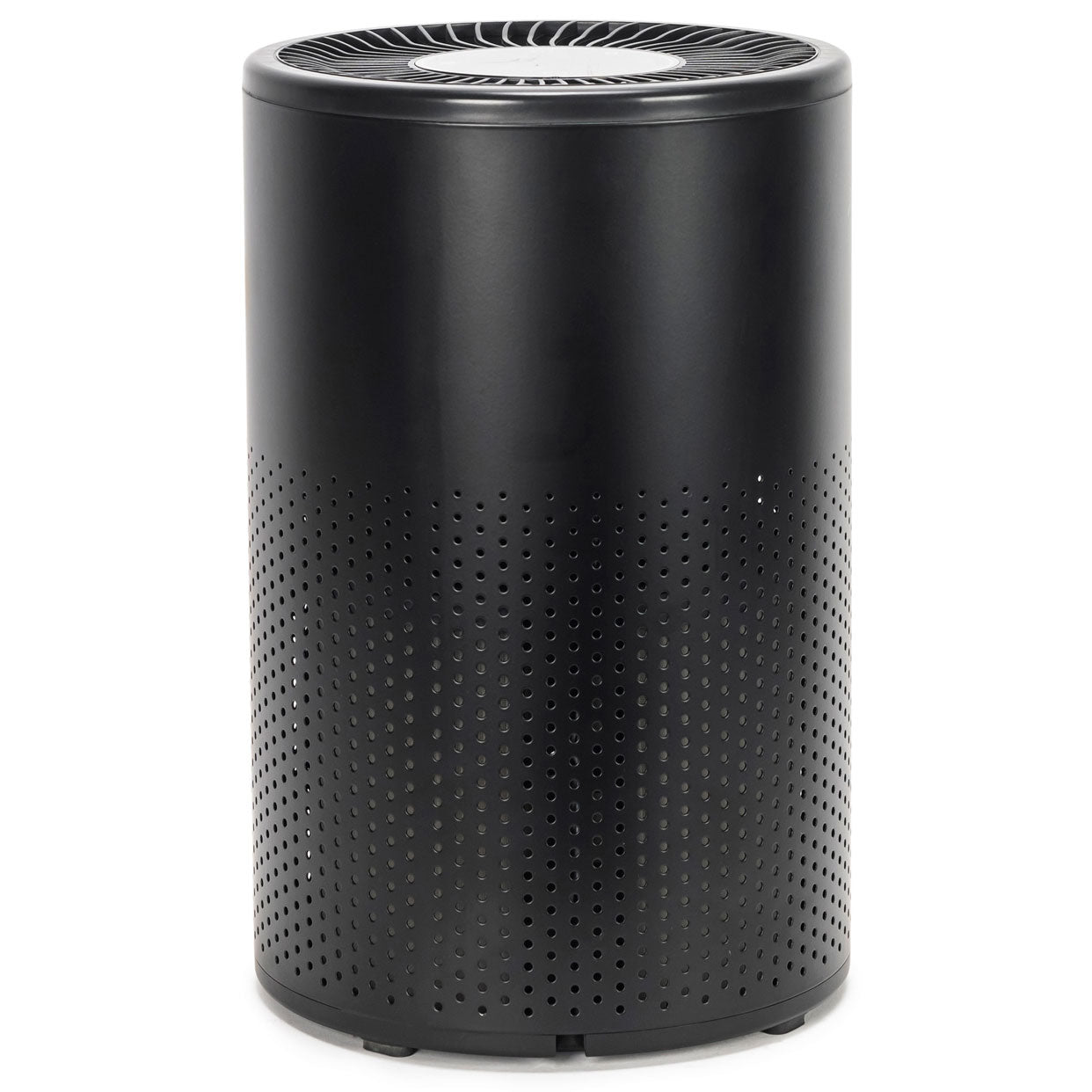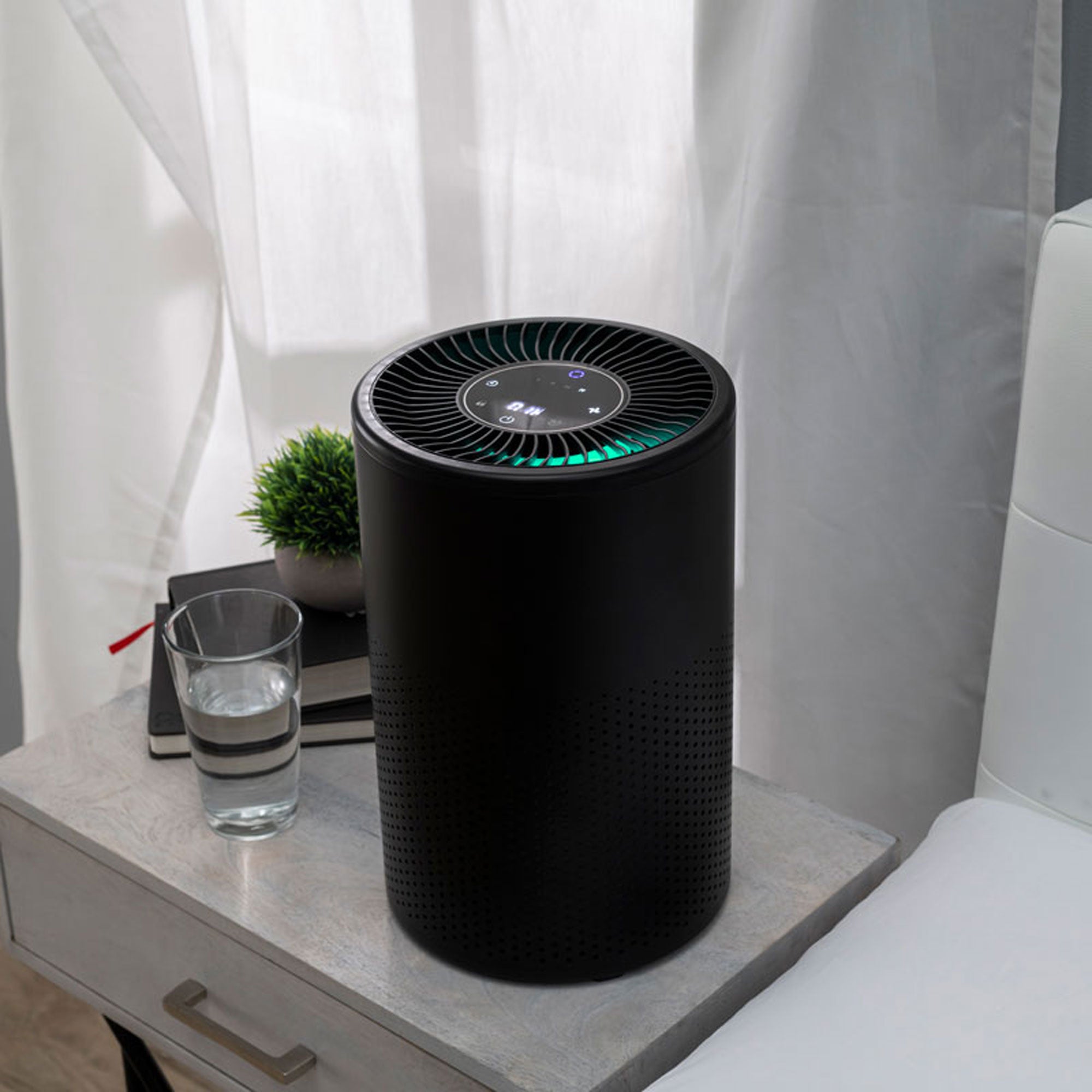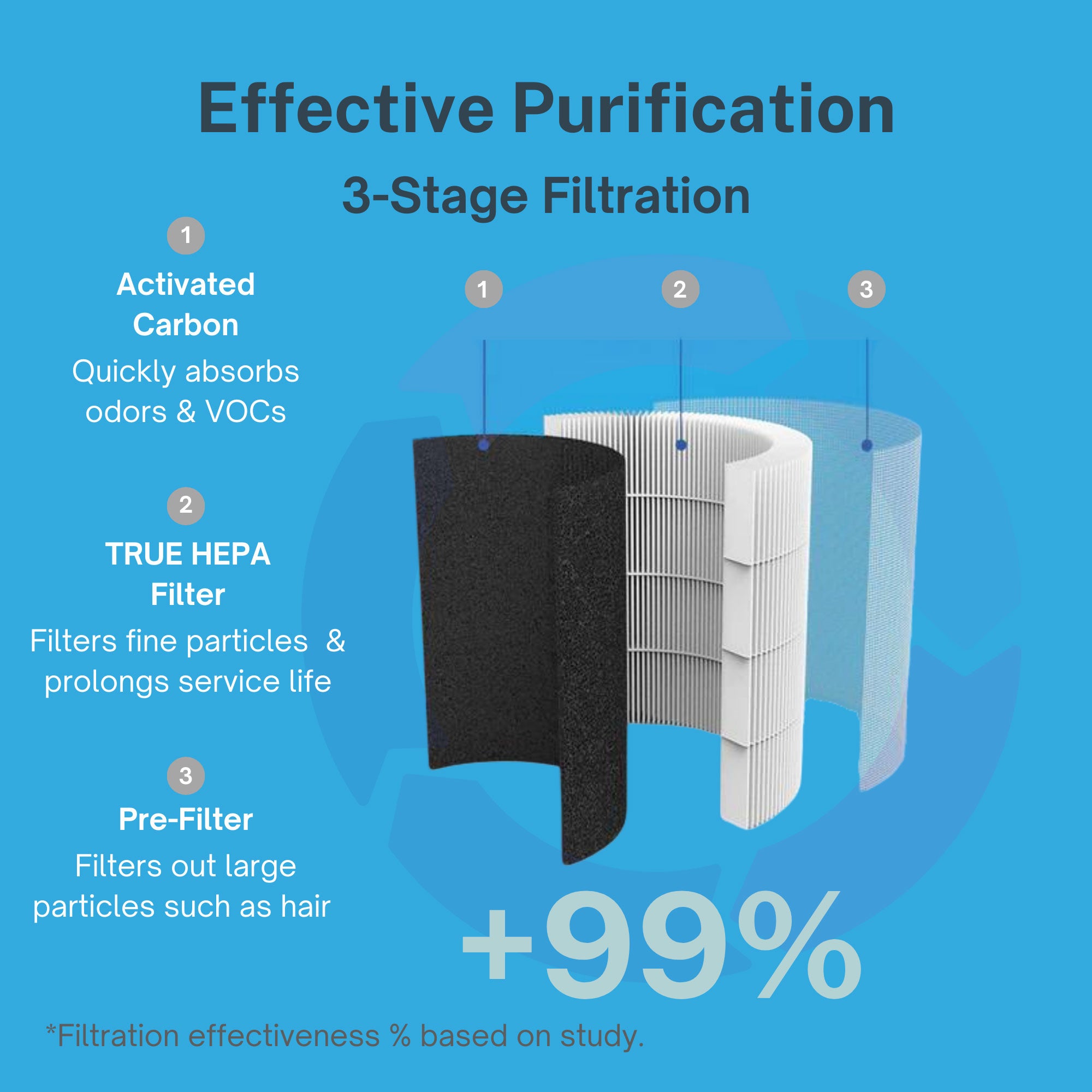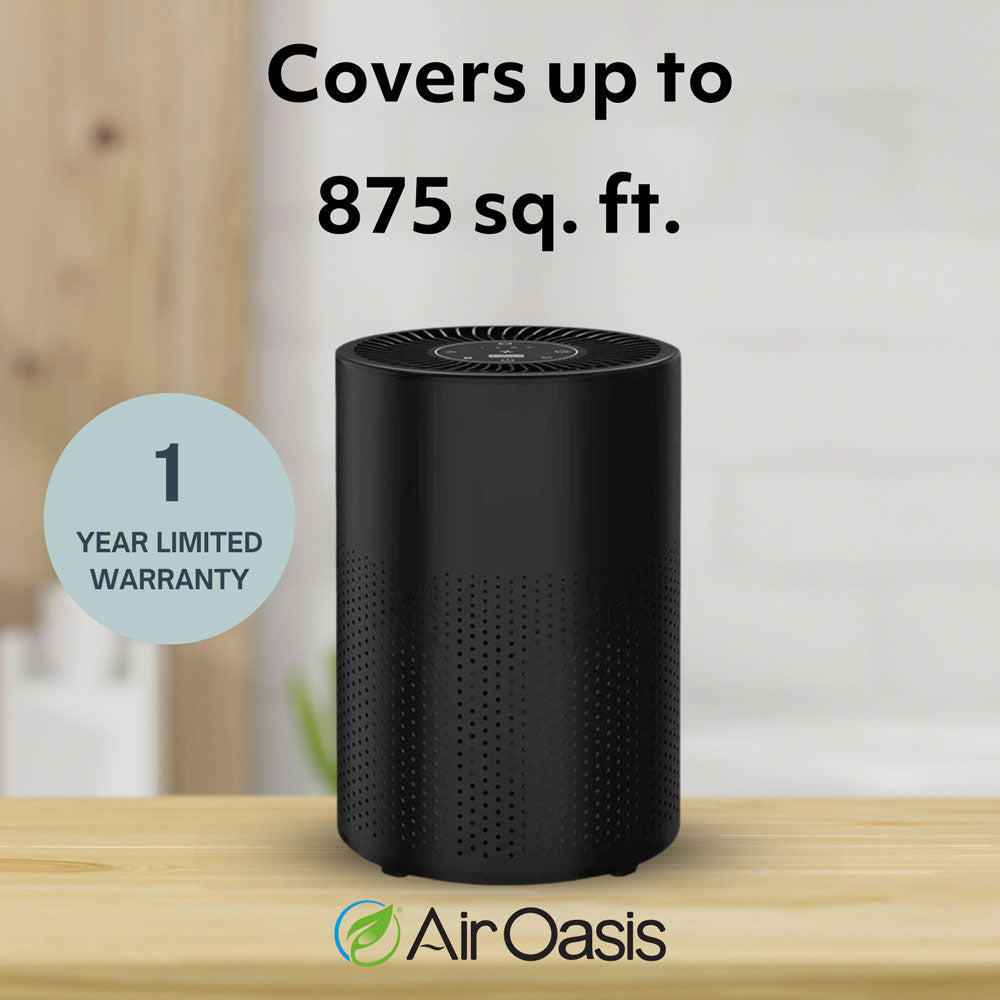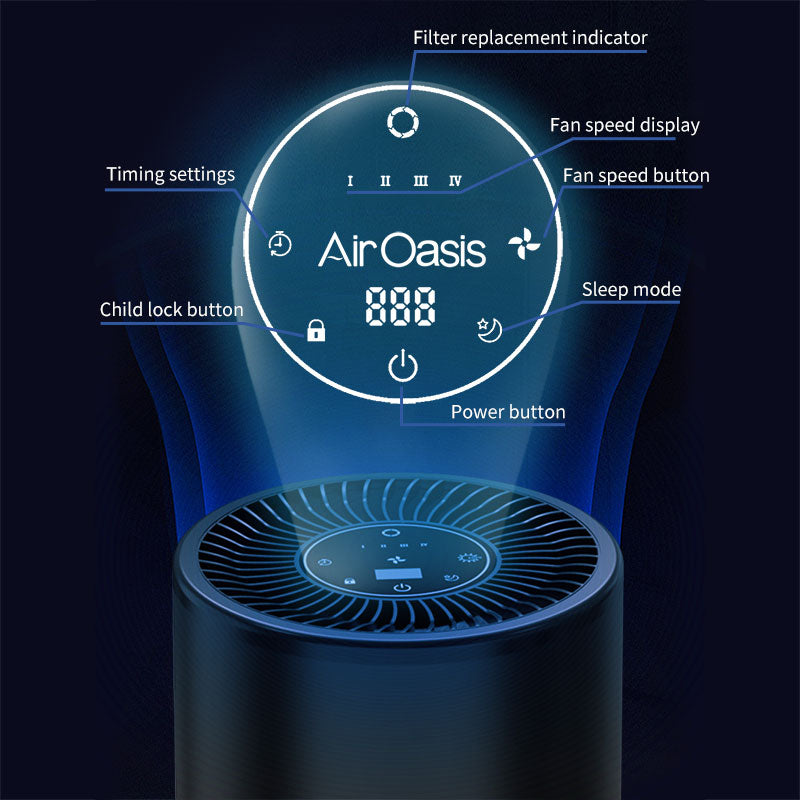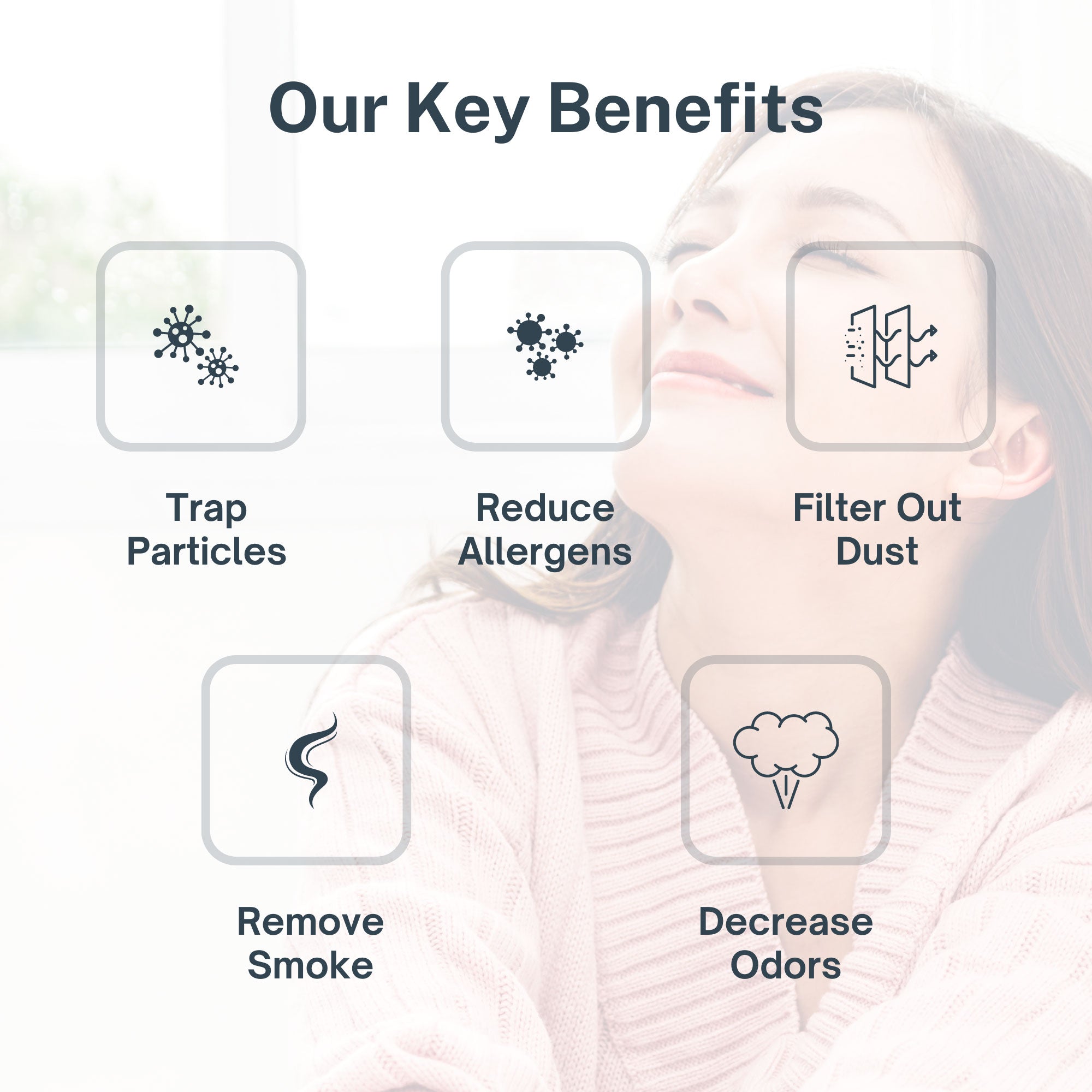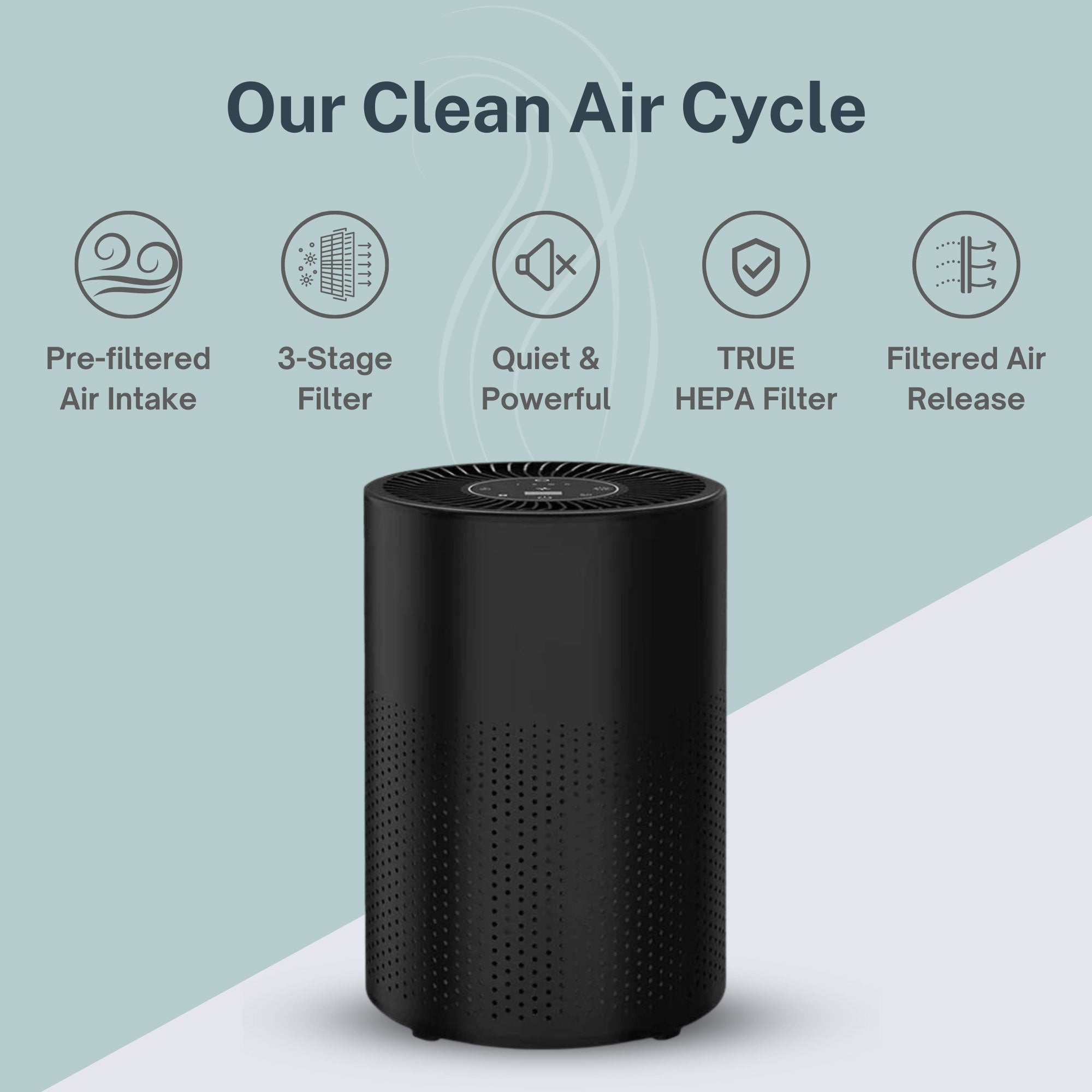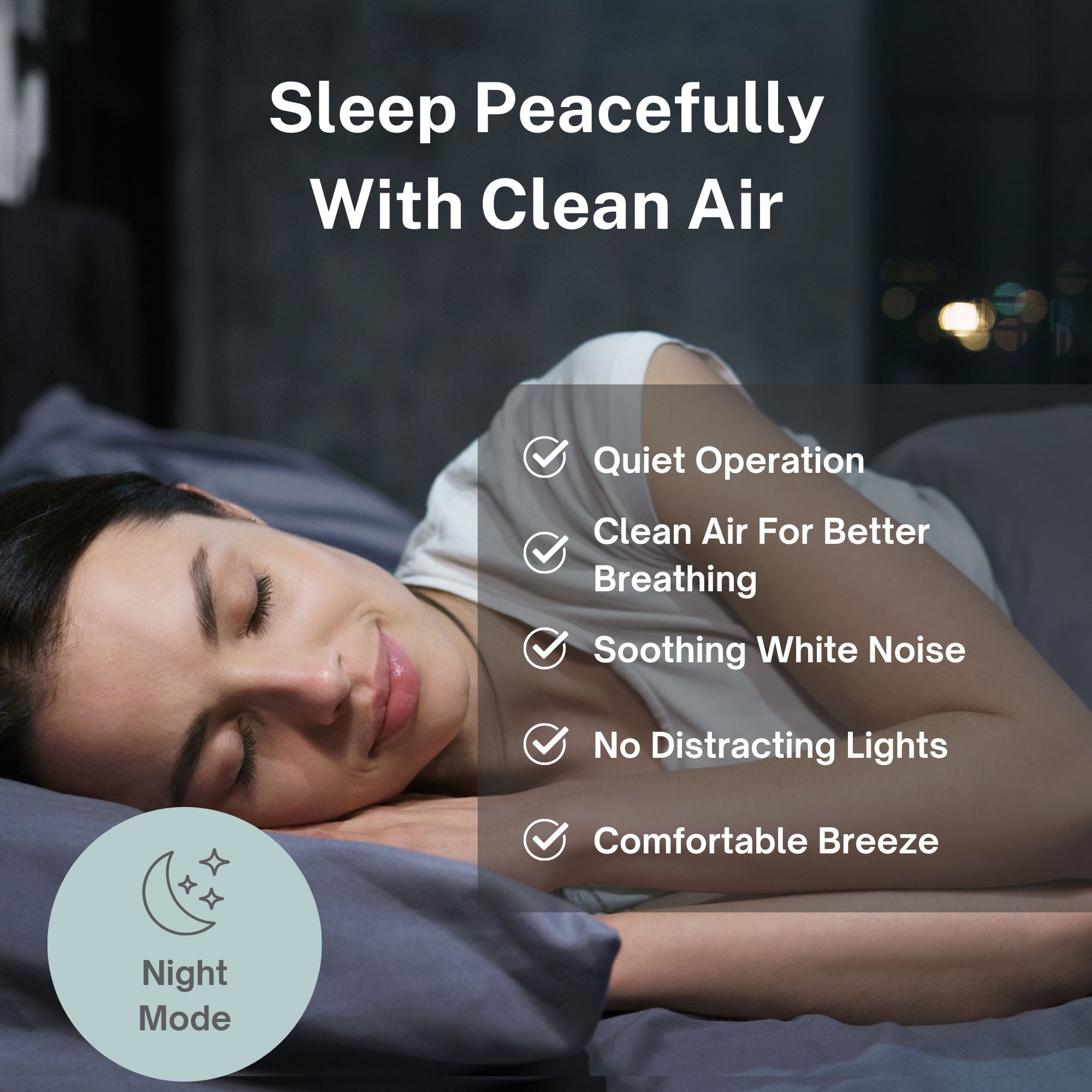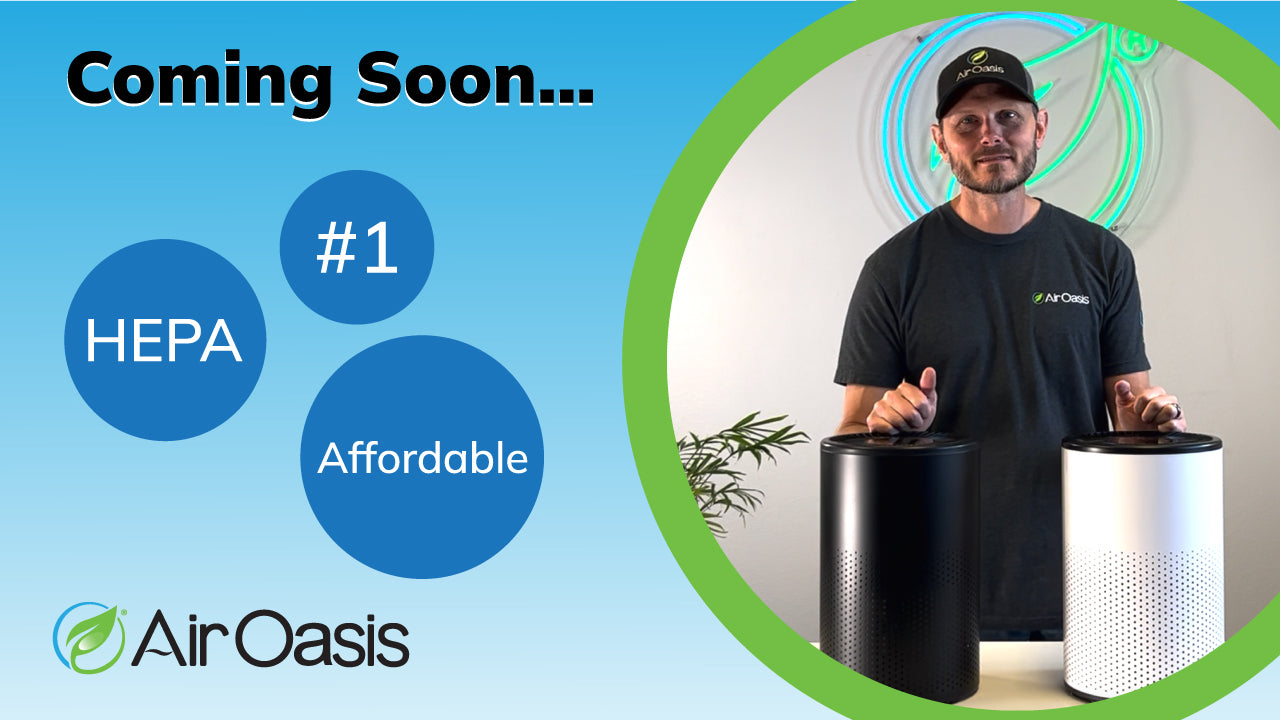We vacuum it, we wipe it, we sweep it, but do you know how dust actually affects your health? If you’re clueless yet annoyed by dust, you are not alone. At the rate those pesky particles collect on your never-used side table and under your bed, it is worth understanding what dust is, how it forms, and how it affects your health. If your home is dusty–and let’s be honest, every home has dust–an air purifier can help reduce the dust particles in the air and benefit your overall health.
What’s in Dusty Air?
Dust is a common air pollutant that reduces air quality. Dust from outdoor sources typically comes from soil in the air from dust storms, construction sites, unpaved roads, and other sources.
However, about one-third of household dust is created inside your home. The components of indoor-generated dust are affected by the age and construction of your home, the climate you live in, and the cleanliness of the individuals that live there. In short, there is no standard formula for dust. Dust is commonly carried in from outside on your shoes or blown in from open doors and windows. There are countless sources of indoor dust, but predominantly dust mites are the culprit.
What Dust Does to Your Body
In many cases, breathing in a small amount of dust is not immediately detrimental to your health. However, the long-term effects and effects of a high dust concentration can be harmful. Individuals with existing health issues are at higher risk of breathing in airborne dust. This can include those with asthma, emphysema or bronchitis, people with heart disease, babies and young children, and older people.
Dust reactions for non-high-risk individuals can include eye irritation, sneezing, coughing, hay fever, and asthma attacks.
Individuals with adverse effects from dust may experience allergic reactions, asthma attacks, or severe breathing problems. Adverse long-term effects can result in heart or lung diseases.
What are the Dangers of Dust Buildup?
We know dust is not great for our health, and the long-term effects can be even worse. We also know that dust lives in almost all homes at different concentrations, despite our best efforts at cleanliness. So, what happens when that pesky dust builds up in our homes?
There are two primary outcomes of dust buildup in the home. The first, as mentioned above, is the effect on the health of the home’s occupants. On a most basic level, dust typically irritates the nose and causes respiratory discomfort, causing symptoms such as cough, congestion, or irritated eyes. However, with mismanaged household dust, dust buildup can eventually cause allergic reactions from dust allergens, including pet dander, mold spores, pollen, and dust mites.
Outside of the adverse effects on human health, another significant danger of dust buildup is dirty ductwork in your home. When dust is not filtered from the air and cleaned from surfaces, it can accumulate in your home's HVAC system. Once collected, the dust often attracts mold growth which negatively affects your indoor air quality. Even if you have a quality filter working on your behalf, dust buildup does not support the long-term maintenance of your HVAC system, which can lead to a shortened product lifespan.
Can Dust Make You Sick?
If you are an individual without high-risk factors such as asthma or heart disease, you may wonder, can dust make me sick? Are irritated eyes the worst symptom I’ll experience?
Research on the exact composition of dust particles in your home supports that even low-risk individuals can get sick from the dust in their homes. Dust can include components of particulate matter that contain harmful chemicals, phthalates, and flame retardants. Exposure to these substances has been linked to asthma, cancer, and reproductive problems.
In the same way that bits of soil can enter the home through an open door or window, remnants of harmful chemicals can also enter our bodies from the dust in the air.
Dust and Pets
Yes, our pets can impair our air quality, but they can also be the victim of poor indoor air quality, just like us humans. Pet dander causes allergic reactions, adds to the accumulation of household dust, and reduces the air quality in your home–but it’s always worth considering how the baseline air quality in your home is negatively affecting your pet. While your four-legged friend bypasses the adverse effects of their pet dander, pets are affected by toxins in the air the same way humans are.
Think of it this way: where do pets spend most of their day? In most cases, inside the home. Because of this, a HEPA air purifier can help filter known household toxins from the air and benefit your pet the same way it will benefit their humans.
How to Decrease Dust in the Air
To find relief from dust in your air, you will need to focus on decreasing its presence in your home.
- Close windows and doors.
- Clean at least weekly. Dusting, mopping, and vacuuming every week (and sometimes even every other day) can help reduce dust and allergen levels and control symptoms.
- Add an air purifier. An air purifier with HEPA technology eliminates 99% of airborne contaminants. With multiple layers of technology, including a HEPA filter, carbon filter, silver ion filter, UV light, and Bi-Polar ionization, the iAdaptAir is equipped with five redundant, overlapping technologies to clean your air more effectively and efficiently.
HEPA for Dust
Air purifiers do just that–purify your air. But not all are created equal when it comes to dust. Any air purifier with a filter will pull air into the filter and capture impurities in your air. Lower-grade filters will be successful at capturing clumps of dust and dirt. You’ll want to employ an air purifier with a HEPA-grade filter to collect the smallest dust particles.
HEPA filters have fine enough material to collect even the tiniest of particles like smoke, pollen, and dust mites. Filtering these small particles will produce much cleaner indoor air, reduced allergens, and other health benefits. Regular cleaning and replacement will ensure your HEPA filter is working at maximum capacity to remove dust from your air.
Air Purifiers for a Dusty Home
It can be overwhelming to consider all of the ways that dust can enter your home. From environmental factors to cleaning habits, dust is always bound to collect at one rate or another. Controlling the controllables when it comes to dust–and making small changes in your living habits to eliminate it–can do wonders for your health. Not only will you not have to clean off that never-used side table so often, but you'll also experience reduced allergic reactions, respiratory issues, and other health problems. Invest in an air purifier with a HEPA filter, close those doors and windows, and experience the ease of breathing cleaner, dust-free air.




